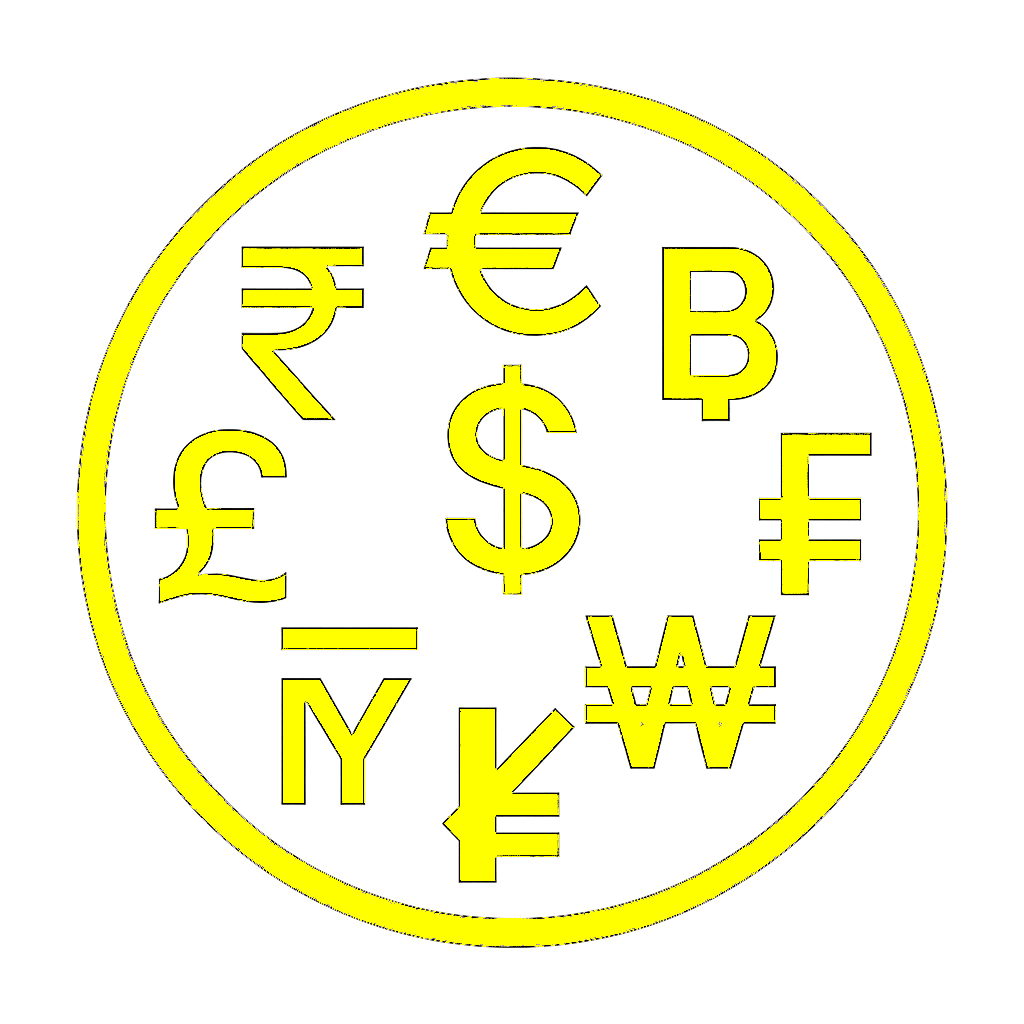International Economics
Lecture Notes (Work in Progress)
Preface
About the notes
Please note that while the PDF contains the same content, it has not been optimized for PDF format. Therefore, some parts may not appear as intended.
- These notes aims to support my lecture at the HS Fresenius but are incomplete and no substitute for taking actively part in class.
- These notes are actually an expert of my lecture notes on Economics.
- This is work in progress and some sections are preliminary.
- I appreciate you reading it, and I appreciate any comments.
- This is work in progress so please check for updates regularly.
- For making an appointment, you can use the online tool that you find on my private homepage: https://hubchev.github.io/
- The logo of this book shown in Figure 1 represents ten important currencies.
Teaching principles
I believe in the Keep It Simple and Straightforward principle (KISS), which emphasizes simplicity and clarity in all aspects of learning and teaching. This, however, does not imply that the content of the book easy to understand. Success still requires logical thinking and a strong work ethic. Those who struggle with this may find it difficult to pass my courses.
In the following sections, I will introduce various mathematical economic models and concepts that provide a structured framework for understanding economics. Familiarity with these concepts is necessary for understanding current literature and analyzing complex scenarios in international trade.
Economic models are based on transparent assumptions and usually consist of a set of equations that explain theories of economic behavior. A robust model should provide valuable insights into the behavior of rational actors and the workings of the economy.
Unfortunately, students sometimes feel overwhelmed by these models because of their reliance on math and rigorous logical reasoning. There is often a perception that there are simpler ways to convey these arguments. While this may occasionally be true, I firmly believe that the formal approach to introducing international economics is most beneficial in the long run. Allow me to back up this belief:
The narrative method, characterized by storytelling and bullet points, is a quick way to convey information on a variety of topics. However, it also has its drawbacks: students can easily get caught up in intuitive anecdotes without developing critical thinking or recognizing the underlying driving forces. As a result, they memorize information only for exams and forget it shortly thereafter.
Unlike anecdotes, formal models are not inherently true; however, they can provide deeper insights into a topic than narratives. In Huber (2025, p. 2.1 From anecdote to insight), I discuss the advantages and disadvantages of anecdotes from an epistemological perspective in greater detail.
Compared to anecdotes, formal models usually offer more flexibility. Once students understand the underlying logic of a model and can interpret and evaluate its implications, they can apply their understanding to different circumstances or topics. In contrast, anecdotes often provide a narrow perspective on a problem, making it difficult to draw general conclusions.
A mathematical economic model functions much like a proof of an argument in that it accurately describes the assumptions under which the argument holds. In contrast, narratives often obscure the underlying assumptions and premises of an argument.
Formal argumentation is the norm in economic research. Familiarity with basic concepts therefore enables students to understand the current literature, conduct research and solve problems in their professional lives.
Understanding an economic model means grasping the underlying relationships, which promotes retention. In essence, formal models promote students’ independent thinking and reasoning rather than mere repetition of the teacher’s words.
How to prepare for the exam
Richard P. Feynman (1918-1988) was a team leader at the Manhattan Project (see Figure 3) and won the Nobel Prize in 1965 in physics. He once said:
“I don’t know what’s the matter with people: they don’t learn by understanding; they learn by some other way – by rote, or something. Their knowledge is so fragile!” (Feynman, 1985)
Of course, the key to learning is understanding. However, I believe that there is no understanding without practice, that is, solving problems and exercises by yourself with a pencil and a blank sheet of paper without knowing the solution in advance. Thus, I recommend the following:
- Attend lectures and and take the opportunity to ask questions and actively participate in class.
- Study the lecture notes and work on the exercises.
- Review the material regularly each week. Learning in small increments is more effective than last-minute cramming.
- Test yourself with past exams that you find in the appendix.
- If you have the opportunity to form a study group, make use of it. It is great to help each other, and it is very motivating to see that everyone has problems sometimes.
- If you have difficulties with some exercises and the solutions shown do not solve your problem, ask a classmate or contact me.
I am convinced that following my recommendations is the best method for students to
- maximize leisure time and minimize the time needed to prepare for the exam, respectively,
- getting long-term benefits out of the course,
- improve grades, and
- have more fun during lecture hours.
About the structure of these notes
I present international economics divided into three major branches:
Monetary international economics: This chapter explicitly considers the meaning of the international financial transaction.
International trade: This chapter is concerned with the determination of relative prices and real incomes in international trade abstracting from the intervention of money. That means trade is considered as an exchange of goods with no financial transactions involved. Of course, this assumption is unrealistic. However, it helps to understand the driving forces of real-world problems.
Trade policy: This chapter is about how international economics is taken into action to build the world we live in.
Moreover, in an appendix I offer solutions to the exercises, some microeconomic and mathematical preliminaries, and some past exams.
Recommended literature
My lecture notes are not a substitute for comprehensive textbooks. They are concise and may not fully explain all economic phenomena. To gain a deeper understanding, or if you’re unfamiliar with the economic principles covered, I recommend reading a textbook for basic explanations of the concepts I use. Below, and within each chapter, are sources that might be helpful for further study.
Economic textbooks: Any major economics textbook can be used to complement this lecture. I personally recommend Mankiw (2024), Blanchard & Johnson (2013), and the open source textbook Shapiro et al. (2022) but you can also use Parkin (2012), Case et al. (2019), and Krugman & Wells (2018). While it is always nice to have a more recent textbook, basically older copies are just as fine (and much cheaper). Also, there are good books that are freely available online such as Shapiro et al. (2022), Anon (2020), Goodwin (2012), and Klein & Bauman (2010).
International economic textbooks: Of course, this lecture cannot cover all aspects of international economics. It os more like a curated collection of crucial concepts to grasp the fundamentals of global trade. For a deeper dive, I suggest exploring a standard international economics textbook of your preference. Here are some books, I recommend: Suranovic (2012), Suranovic (2016), Krugman et al. (2017), Feenstra & Taylor (2017), Pugel (2015), Carbaugh (2016), and Marrewijk (2012).



